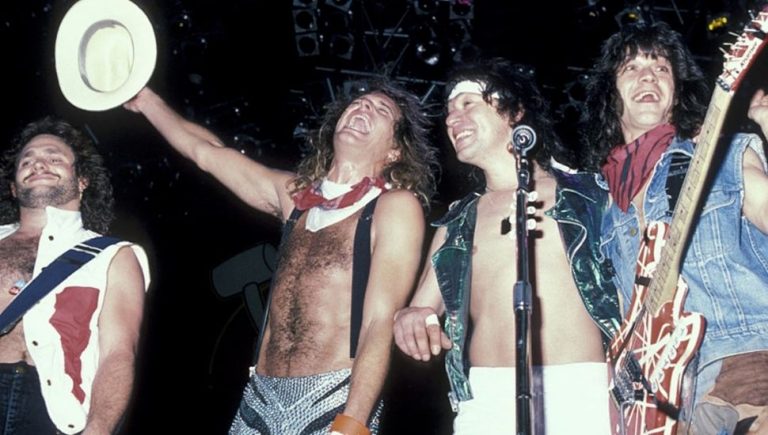Former Van Halen bassist Michael Anthony has said that the band’s temporary vocalist Sammy Hagar was better than David Lee Roth and explained why.
“When ‘Jump,’ which was our only big single from the early days of Van Halen, Roth didn’t even want that song on the album because he’s all, ‘Eddie, you’re a guitar god, man, you’re not supposed to be playing keyboards.’ And Eddie, he grew up classically trained. Piano, in addition to picking up guitar,” Anthony explained in a recent interview with Mitch Lafon and Jeremy White.
He added: “When Sammy joined the band, I think it was just a natural progression of the band. We just continued writing and Sammy brought in this whole knowledge of being a guitar player himself, he understood structure of music and stuff like that. From that standpoint, where David would always write the lyrics and go, ‘Yeah, man, play that hard or whatever,’ Sammy’s like, ‘Hey, you got this chord here, what if we play this chord or whatever, make this change.”
Roth was a founding member of the band in 1972, but left in 1985 to form a new band. While there’s varying explanations about why he decided to leave, the general consensus suggests that Roth was concerned about Eddie playing music outside of Van Halen.
After Roth left Van Halen, Sammy Hagar replaced him. He stayed with Van Halen 11 years, leaving in 1996. Roth eventually returned to the band in 2007.
Anthony continued to sing Hagar’s praises in the interview, saying that the replacement singer “changed the dynamic of the band”.
“He brought a whole new element, and it just kind of changed the dynamic of the band. We weren’t going to continue doing what we didn’t want to continue doing, what we were doing with Dave. Because that was with Dave. It’s the natural evolution within the way the band was evolving.”
Love Music?
Get your daily dose of metal, rock, indie, pop, and everything else in between.
For more on this topic, follow the Classic Rock Observer.


































